General Internal Medicine
Our members are responsible for curriculum development, residency scholarship, quality improvement activities, and department-wide faculty development.
General Internal Medicine
Our members are responsible for curriculum development, residency scholarship, quality improvement activities, and department-wide faculty development.
Overview
The Division of General Internal Medicine (DGIM) faculty includes more than 40 Full Time Faculty and over 100 Clinical/Part-time faculty across Rhode Island Hospital (Primary Site) and The Miriam Hospital.
Mission Statement: In the Division of General Internal Medicine, we provide comprehensive and compassionate patient care to all without exception; we lead by teaching and mentoring the physicians of tomorrow and by advancing medical knowledge and medical education with meaningful research and scholarship. We work in an environment of collegiality, mutual respect, and creativity. We value diversity, innovation, and commitment. Member of the Division are supported and encouraged to reach their full potential as healers, teachers, and scholars. We honor the unique contributions of all faculty members in our success.
Vision Statement: To be national leaders in general internal medicine education and research with a regional reputation for excellence and innovation in delivering inpatient and primary care. Led by DGIM Director Kelly McGarry, MD, FACP, the General Internal Medicine Division, based at Rhode Island Hospital, engages in substantive and impactful patient care, educational, community outreach, medical education scholarship, and research activities. Examples of such activities include:
Education. DGIM faculty are responsible for major roles in undergraduate and graduate medical education and residency leadership within the Department of Medicine. Our faculty are responsible for curriculum development, residency scholarship, quality improvement activities and department-wide faculty development. DGIM is also home to one of the country’s oldest Primary Care Residency programs, with a strong emphasis on behavioral medicine. We are also home to the Addiction Medicine Fellowship. Members of the division hold major leadership positions in National Graduate Medical Education organizations such as the American College of Physicians, Society for General Internal Medicine, Clerkship Directors in Internal Medicine, and Association of Program Directors in Internal Medicine. For more information about the Brown Internal Medicine Residency Program, including the General Internal Medicine/Primary Care Residency and General Internal Medicine roles, please visit our Internal Medicine Residency website.
Clinical Care. DGIM clinical activities include six academic clinical practice sites, with clinical expertise in women’s health, men’s health, and gender-affirming care. DGIM faculty are responsible for leadership, education and precepting in resident continuity clinics, supervising and teaching residents using a state-of-the-art interactive curriculum. A unique feature of this division is that most of our faculty teach and supervise residents and interns on the geographically oriented inpatient general medicine wards at RIH. While in their roles as hospitalists, they draw upon outpatient experience to provide a well-rounded educational experience which complements that of other inpatient resident rotations.
Community Outreach. The Division of General Internal Medicine, under the energetic leadership of Dr. Kyla Dewar, partners with the Office of Belonging, Equity, Diversity & Inclusion of the Division of Biology and Medicine of Brown on various Pathways initiatives to improve opportunities in health-related careers for students under-represented in medicine in our communities. Our faculty provides mentorship and clinical opportunities for shadowing to the Pathways’ high school students as well as college students participating in the Month of Medical School and The Leadership Alliance Physician-Scientist track of the Brown University SR-EIP. To learn more about these and other pathway programs please visit the Community Engagement and Pathway Programs website.
Medical Education Scholarship. Under the direction of Dr. Rebekah Gardner the division figures prominently in contributions to medical education innovations and scholarship regionally and nationally. We support scholarship opportunities for all division faculty through mentoring, guidance, and support and through several initiatives, including: the STAR grant program, Research in Progress workshops, Workshopaloozas, our Mentoring Program, and our Faculty Development Series. Many division faculty have leadership positions in regional and national medical education organizations.
Research. Our research faculty have grown tremendously over the last 5 years, going from one full-time researcher to five. HIV prevention and care, substance use disorders, tobacco cessation, and improving healthcare and access for those with disability and serious illness are some of the subject areas investigated and presented nationally. We invite you to explore this website to learn about the Division of General Internal Medicine at Brown.
Faculty
Division Leadership
-
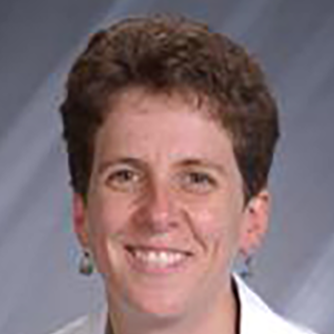
Kelly McGarry, MD, FACP
Professor of Medicine; Division Director -

Michelle Anvar, MD
Associate Professor of Medicine; Director of Primary Care, Brown Medicine Academic GIM Practices; Clinician Educator
-

Lynn Bowlby, MD
Assistant Professor of Medicine; Associate Director, Center for Primary Care Resident Continuity Clinic; Clinician Educator -

Stephanie Catanese, MD
Assistant Professor of Medicine; Director, Faculty Wellness Program; Clinician Educator -
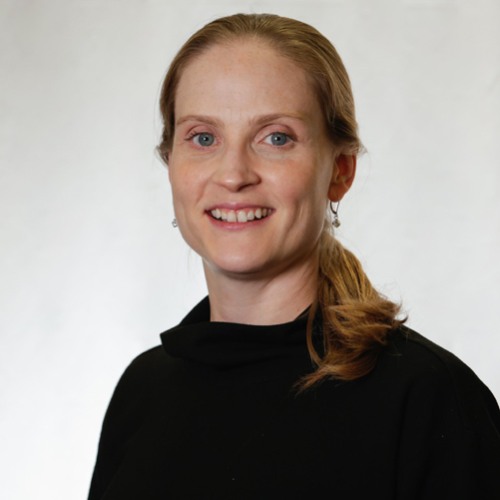
Kyla Dewar, MD
Assistant Professor of Medicine; Director, DGIM Pathways Initiative; Clinician Educator -
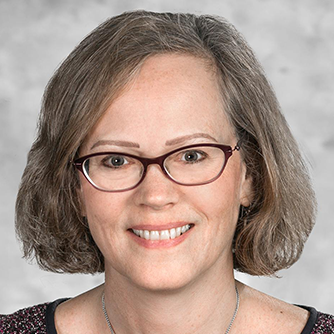
Christine Duffy, MD, MPH
Associate Professor of Medicine; Medical Director, Fain Primary Care Resident Continuity Clinic; Clinician Educator -
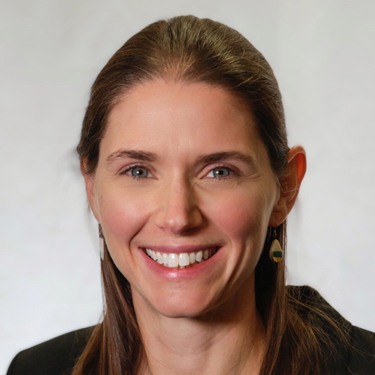
Sarah Freeman, MD
Associate Professor of Medicine; Director, POCUS Section; Clinician Educator -
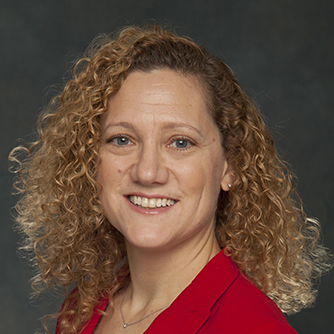
Rebekah Gardner, MD
Associate Professor of Medicine; Director, General Internal Medicine Scholarship -
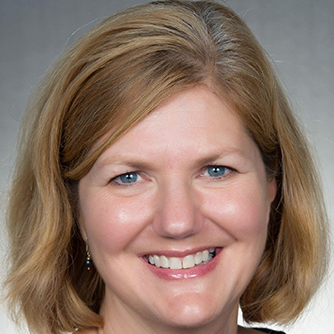
Jennifer Jeremiah, MD
Professor of Medicine; Director, Faculty Development in Clinical Education; Clinician Educator -
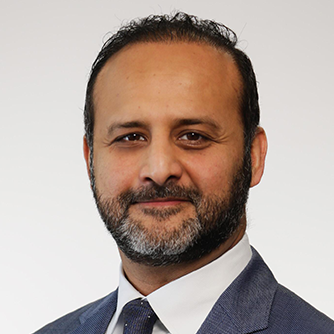
Hussain Khawaja, MD
Associate Professor of Medicine; Director, Medicine Inpatient Teaching Services, RIH; Clinician Educator -

Melissa McNeil, MD, MACP
Professor of Medicine; Director, Faculty Development Curriculum; Clinician Educator -
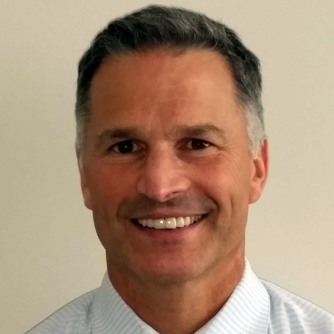
Dino Messina, MD, PhD FACP
Associate Professor of Medicine; Medical Director, Center for Primary Care Resident Continuity Clinic; Clinician Educator -

Mark Schleinitz, MD, MSc
Associate Professor of Medicine; Director, Quality Improvement Program -

Cathleen Whelan, MD
Assistant Professor of Medicine; Associate Director, Fain Primary Care Resident Continuity Clinic; Clinician Educator
Education
DGIM faculty are responsible for major roles in graduate medical education and residency leadership within the Department of Medicine for students and residents. Education occurs in multiple venues including the hospital wards and units, clinics, ambulatory longitudinal experiences, outpatient offices, and didactic sessions at the hospitals and the Alpert Brown Medical School. Faculty have embraced competency-based education and recognize their crucial role in a learner’s progression from novice to independent physician.
The Department of Medicine supports Faculty Development programs to keep all faculty abreast of updates in medical education, principles of assessment, use of direct observation and delivery of quality feedback. DGIM faculty are committed to their role in advancing learners to become consummate internists.
DGIM members are responsible for curriculum development, residency scholarship, and quality improvement activities. This Division is also home to one of the country’s oldest Primary Care Residency programs, with a strong emphasis on behavioral medicine and preventative health. DGIM also oversees a substance use disorders fellowship.
Members of this division hold major leadership positions in National UME and GME organizations such as the American College of Physicians, Society for General Internal Medicine, Clerkship Directors in Internal Medicine and Association of Program Directors in Internal Medicine.
Ambulatory Education
Center for Primary Care – Overview & Demographics
The Center for Primary Care at Rhode Island Hospital is conveniently located on the bus line in South Providence three miles south of Rhode Island Hospital. We are a safety net facility for the greater Providence Community and one of three ambulatory training sites for the Brown Internal Medicine Residency program. Our population is diverse and over 70 different languages are spoken. Our payor mix is 80% Medicaid/Medicare, 10% commercial and 10% self-pay. We provide onsite interpreter services with 4 full time Spanish interpreters; 2 mobile video interpreters and each exam room has on-demand language line capabilities for over 240 languages.
We provide on-site subspecialty care for the following disciplines:
- Gastroenterology and Hepatology
- Endocrinology
- Rheumatology
- Psychiatry (Brown Psychiatry Resident Clinic)
In addition, we offer several unique clinics and other services as detailed below, it truly takes a village to provide the quality of care our at-risk communities deserve.
Center for Primary Care – Selected Resources
At the CPC we have a large team that provides many additional resources for our most vulnerable or complex patients. Some of these team members include:
- PharmD Staff. We have Pharm D’s on site assisting with managing chronic disease such as diabetes, and hypertension as well as complex medications such as coumadin. Visits with pharmacists may be virtual, by phone and in person. Several of the Pharm Ds are also CDEs (Certified Diabetic Educators). They serve as a valuable resource for patients with a new diagnosis of DM or for those needing additional instruction.
- Social Work Staff. We have 2 Master level Social Workers and 1 Bachelor level social worker on site in the CPC. They each provide incredible benefit to our patients by providing services such as 1:1 psychotherapy and expedited mental health referrals (psychiatry and therapists ). They also assist with complex documentation, placement needs, emergency commitment needs, referral to partial hospitalization programs and help with securing community services for our patients.
- On Site Psychiatry. There are several clinics on site with psychiatrists and residents. They assist residents and attending staff to provide onsite guidance as well as direct mental health services.
- On Site Laboratory Facilities. Blood, urine and other labs can be done at the CPC, including evening hours
- Connect for Health: Connect for Health (C4H) is a program of the Brown University Health Community Health Institute that screens patients for health-related social needs and provides navigation support to secure basic needs including but not limited to support with SNAP applications, housing applications, getting on discounted electric and fuel rates, and support with commodities for children and adults. In doing so, C4H uniquely bridges medical, community and social needs to help patients achieve a complete state of health. Starting more than 20 years ago as a family help desk with a handful of volunteers, C4H has evolved into a program with 175+ volunteer Advocates made up of undergraduate and graduate level students who serve thousands of patients a year. C4H is a program of Brown University Health’s Community Health Institute (CHI), which works to eliminate health disparities and promote health equity. Examples of the services offered by C4H are:
- Connect for Health’s Little Free Pantry:
Connect for Health’s Little Free Pantry (LFP) at the Center for Primary Care provides toiletries and non-perishable foods to our patients, reinforcing Brown University Health’s mission of Delivering health with care. LFP is intended for low-income families and individuals. The Little Free Pantry is located in the lobby at the Center for Primary Care.
- Connect for Health’s Clothing Closet:
Connect for Health’s Clothing Closet at the Center for Primary Care provides adult clothing and shoes to our patients.
- Connect for Health’s Little Free Pantry:
Ambulatory Curriculum & Education
Most healthcare in the United States occurs in the ambulatory setting and most residency graduates will have careers involving an ambulatory component regardless of whether they choose a specialist or generalist career pathway. Our ambulatory curriculum is therefore designed to create a strong foundation in ambulatory medicine and to provide our residents with the skills necessary to be successful ambulatory clinicians and leaders regardless of their intended career choice. The goals of the ambulatory curriculum are to prepare residents to:
- Deliver high quality, evidence-based, comprehensive primary care to a panel of patients
- Appreciate how to navigate a complex medical system and work within a multidisciplinary team to coordinate the care of their patients
- Develop the knowledge and skills required to diagnose and manage the most common ambulatory clinical conditions and preventive care needs of their patients
- Gain experience in a community-based ambulatory setting (i.e., “Second Site”) that will supplement their continuity clinic experience and specifically prepare them for their intended career pathway
In addition to our dedicated ambulatory rotations, our ambulatory curriculum is broken down into four main components: 1) the continuity clinic experience, 2) community-based teaching experience (second site clinic), 3) an ambulatory didactic curriculum, and 4) additional clinical experiences in which residents can elect to participate. More information can be found on Ambulatory Medicine Curriculum and Educational Programming on our Internal Medicine Residency website under the heading “Common Ambulatory Curriculum”.
Faculty as Preceptors
Faculty in the Division of General Internal Medicine are dedicated to the education of our residents and many precept residents at the Center for Primary Care (CPC) and the Fain Clinic at Miriam Hospital, both of which serve our communities as safety-net clinics. Preceptors at the CPC include a combination of faculty who practice primarily at the CPC, who practice at our affiliated faculty practice (BMAP), and who practice primarily on our inpatient wards teams (MedB). The varied expertise of faculty preceptors creates both a rich learning environment for our residents and better care for our complex patient population.
CPC – Specialized Clinics
Transitions of Care Clinic
Transitions of care from the hospital to home is difficult for many patients, especially those with high needs. Our Transitions of Care Clinic takes a comprehensive and multi-disciplinary approach to post hospital care. Our team consists of a Social Worker, Nurse Care Manager, Pharmacist and Attending Physician and resident physician. We address our patient’s global needs (both medical and non-medical) as they transition back to home life. This clinic is held weekly, coordinated by our Nurse Care Managers and has proven to improve clinical outcomes by reducing hospital utilization. A typical visit is over 60 minutes, booked within 2 weeks of hospital discharge. We find this clinic to be an excellent educational opportunity for residents working side by side with our team members.
Other Specialized Clinics overseen by Division of General Internal Medicine Faculty can be found via the links below, which will bring you to the Brown Internal Medicine Residency Website Ambulatory Medicine Section descriptions (under the “Additional Clinical Experiences Section”.
Refugee Health – click for more information
Reproductive and Gender Care Clinic
The Center for Primary Care’s Reproductive and Gender Clinic provides consultation visits for CPC patients of all genders. Common reasons for consultation include: hormone-related issues (menopause, hypogonadism and gender-affirming care); contraception and family planning (full spectrum including IUDs, contraceptive implants, medication abortion); vaginitis; and trauma-informed pelvic examinations for patients who do not want to obtain their pap smear/cervical cancer screening with their regular PCP. The clinic is staffed by Dr Mindy Sobota and 1-2 resident doctors committed to women’s health.
Recovery Clinic – click for more information
Procedure Clinic – click for more information
The Center for Primary Care offers a dedicated Procedure Clinic for patients requiring office-based procedures, including:
- Joint/Bursa Aspiration/Injections
- Incision and Drainage
- Skin Biopsies – Shave and Punch
- Skin Tag Removal
Our Procedure Clinic also offers a valuable training opportunity for residents to rotate through and receive a structured educational experience. During their time in the clinic, residents are trained to perform these procedures under the supervision of an experienced physician. Educational materials are provided as part of the structured curriculum to enhance their learning experience. The focus of procedural education is to help residents become more comfortable addressing common musculoskeletal complaints and learn essential office-based procedures.
Our goal is to enhance patient access to care while upholding the highest quality standards for our patients, trainees, staff and providers.
Additional Continuity Experience (Community-Based Teaching Program, aka “Second Site”)
Residents participate in a Community-Based Teaching Program commonly referred to as “Second Site”. During their 2nd and 3rd years, residents choose a primary care or subspecialty faculty practice setting in which to augment their outpatient experience. Many DGIM faculty participate as preceptors. More on this rotation can be found on our Internal Medicine Residency website under “Continuity Clinic Experience”.
Residency Programs
Internal Medicine Residency Program
The Brown University Internal Medicine Program seeks to promote the development of the consummate internist – doctors who practice with a high level of compassion, knowledge, skills, and professionalism.
Fellowship Program
Clinical Care & Faculty Primary Care Practices
In addition to their roles as educators and investigators, our faculty are engaged in the practice of ambulatory primary care medicine and inpatient medicine. Individuals provide clinical care in 3 areas: residency-related clinics, hospital inpatient wards and outpatient primary care.
Our residency clinics (see our Internal Medicine Residency website for more detail) include:
Center for Primary Care
245 Chapman Street, Suite 300
Providence, RI
Fain Medical Clinic
Fain Ambulatory Center, Miriam Hospital
164 Summit Ave
Providence, RI
PVAMC Clinic
830 Chalkstone Ave
Providence, RI
Primary Care
Our faculty provide patient care in Brown Medicine offices. Brown Medicine is one of the largest academic, not-for profit multi-specialty groups in Rhode Island and has six Primary Care practices scattered across Rhode Island. All practices are patient centered medical homes with teams that consist of advanced care providers, nurse care managers, social work, pharmacists, pharmacy technicians and behavioral health. The practices care for approximately 40,000 Rhode Islanders and in addition to routine hours has evening and weekend urgent care visits to accommodate our patient’s needs.
Primary Care Practices are located throughout the state of Rhode Island. Individual locations can be reviewed at the Brown Medicine website and clicking the “Locations” Menu item. Faculty practice locations include:
Internal Medicine East Greenwich
1454 South County Trail
East Greenwich, RI 02818
East Providence Primary Care
Brown Physicians Patient Center
375 Wampanoag Trail, Suite 201
East Providence, RI
Internal Medicine East Providence
Brown Physicians Patient Center
375 Wampanoag Trail, Suite 301
East Providence, RI
Providence Primary Care
909 North Main Street, Suite 300
Providence, RI 02904
Brown Internal Medicine Smithfield
900 Douglas Pike, Suite A1
Smithfield, RI 02917
Warwick Primary Care
43 Jefferson Boulevard, Suite 2
Warwick, RI 02888
Inpatient Care
GIM faculty have full and part-time roles as inpatient medical teaching attendings at Rhode Island Hospital and the Miriam Hospital. Both are located in Providence, RI and are major teaching sites of the Warren Alpert Medical School of Brown University. Rhode Island Hospital is the largest hospital in RI and is a Level 1 trauma center with 719 beds and the Miriam Hospital is a 247-bed hospital. Faculty work with care teams that include residents, and medical students
Faculty Development Program
Faculty Development Seminars
The Division of General Internal Medicine (DGIM) is committed to maintaining excellence in clinical care, education, scholarship, academic accomplishment and personal development. To foster this goal, the DGIM has developed a twice monthly hour-long faculty development seminar. Seminars are held virtually allowing faculty from across the campus to attend. Topics revolved around teaching skills, assessment and evaluation, and professional development. Topics for the 2023-2024 academic year included the following:
- How to Read a Letter of Evaluation
- Pearls, Pitfalls and Perks of Medical Education Research
- How to Accomplish Direct Observation of Residents in Clinic
- Tell Me What You Really Think: How to Provide and Receive Realtime Feedback
- Skills to Recognize and Respond to Discrimination and Harassment from Patients
- Mentoring
- Managing the Imposter Syndrome
- Remediation of Residents with Knowledge Based Deficits
- Perfectionism and People Pleasing
- Guidelines for Writing and Evaluating History and Physicals
- Review of a De-escalation Curriculum for Managing Challenging Patients
- Assertiveness vs Aggression
- Review of the GME Internal Medicine Residency Survey
Faculty Mentoring Program
The Division of General Internal Medicine has implemented a mentoring program for junior faculty designed to optimize the early experience in academic medicine and help new faculty chart a course for success. Junior faculty are assigned to a senior faculty member who meets with the new faculty member on a regular basis. The senior faculty mentor facilitates finding research collaborators, developing scholarly productivity and navigating academic advancement.
Research & Scholarship Programs
In addition to our clinical and educational missions, the Division of General Internal Medicine supports a robust research program. The research interests demonstrate the wide-ranging intellectual curiosity of our faculty members. The Division measures its success in scholarship (number of publications and impact), the funding earned by our faculty members, and the impact of the research on our patients.
The Research Section of the Division of General Internal Medicine provides a multidisciplinary environment for health services and clinical research to optimize physical and behavioral health. Led by Director Dr. Susan Ramsey, our investigators collaborate closely with investigators across the Brown community, across the country, and around the world. Core faculty include Drs. Brandon del Pozo, Matthew Murphy, Ju Park, and Maggie Salinger.
Dr. Ramsey and her team provide support to GIM faculty and residents in the form of methodological design and conceptualization consultation, assistance in performing literature reviews, IRB application support, production of data collection tools, data entry, EMR data extraction, quantitative data analysis, and coding and analysis of qualitative data.
Clinical faculty in GIM also pursue research and mentor residents and medical students in their own scholarly projects. Our faculty are implementing and evaluating new curricula, writing book chapters, publishing original research, leading workshops, contributing to case reports, writing perspective pieces and editorials, crafting podcasts, and performing systematic reviews. Our interests range widely; our scholarly work explores medical education, reproductive health and justice, care of vulnerable populations, advocacy, point-of-care ultrasound, women’s health, mentorship in academic medicine, patient communication, health information technology, and quality improvement in both the hospital and clinic settings, among other topics. Led by the Director of Scholarship Dr. Rebekah Gardner, we take pride in the diverse ways that GIM faculty collaborate to investigate and improve education, care delivery, and the practice of medicine.